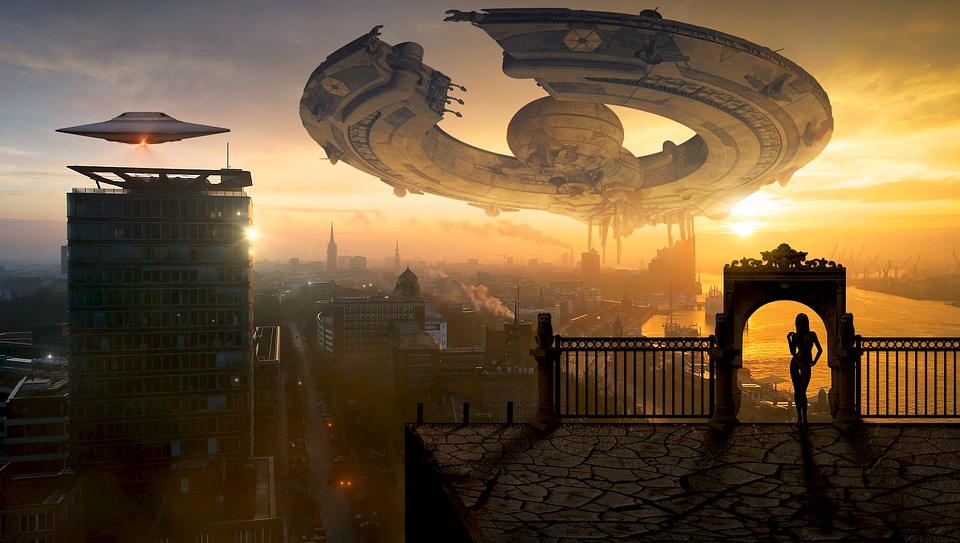
Future in a World with Artificial Intelligence
Our views and biases about the future and AI affect our daily lives and government policies. This can affect our decisions and can have grave consequences. So it is essential to develop a realistic approach in thinking of our future. A better idea of the big picture can help us address the grave questions for humanity. This article explores the role technology has played in the past and to what direction are we going with AI.
What kind of future are we going to?
Sci-fi movies and media provide us with many creative utopian and dystopian ideas about the future of humanity. Many fictional settings give a wide range of situations of people using futuristic technology. These range from utopias with abundant resources, to the various dystopian worlds resulting from the abuse of technology. With so much variety in the way we imagine our future, we must consider about what the future would really be like?
We can predict things such as weather, favorable chess moves, sales and so on, but what about our own future? The reason why it is so difficult to do so is because of the fast growth of technology and culture. There was a generation where people lived in a relatively unchanging world. Everything has changed at a rapid speed in recent years. This includes the way we interact, the way we solve problems, our knowledge of the universe and so on. This change is so radical that the world of a few generations ago was drastically different from our own. This speed of this change will only increase. We are now at a stage where no amount of planning will be sufficient.
Some experts say that an increase in artificial intelligence will improve our lives, but many others worry about how developments in AI affects what it means to be human, what is the purpose of being productive, or if free-will really exists?
Looking at the Past for the future
Steve Jobs said that we can only connect the dots looking backwards. It is true not just for individuals, but even for civilizations or for AI learning from past data. We need to look at the past to be able to connect our dots and guess where they might lead us in the future.
Understanding the past enables us to be a better judge about the future.
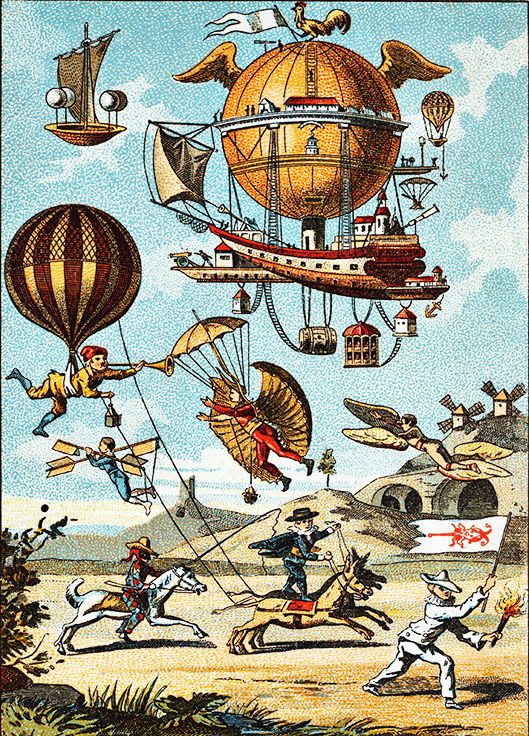
Image Source: Wikimedia Commons
Our perspective is limited. We cannot perceive the vastness of the universe or the possibilities of future events. Various observations of distant galaxies tell us that the universe is expanding. One of the fundamental laws of thermodynamics is that entropy of the universe can only increase. This is how our fundamentals and culture are based off.
Yet these ideas do not answer our dilemma of existence. The origin and functioning of the universe remain a mystery no matter how deep we go.
Even so, these questions remain a concern
Humanity so far
Technology and compiled knowledge improves human abilities and affects human activity and society. This has been the course of humanity ever since we came on the face of this planet. Over the course of humanity, we have had phases, sometimes called revolutions.
The agricultural revolution marked our change as a nomadic hunter-forager species to a sedentary one, it took place over thousands of years.
The industrial revolution changed our production and consumption habits and led to the emergence of massive cities, supported colonialism as well as resistance against it, and eventually led to the modern era. This took place over a few centuries.
Then came the digital revolution, the emergence of modern computers and related technologies which have made us more connected and affected our outlook on the world yet again. It took place over a few decades. The internet now connects over half of the world’s population in some way or other. This will be the trend for the coming future, if not the foundation for it.
The era from hereon…
At this point, we are at the initial phases of an AI revolution. Previous technologies and revolutions act as the base of this “revolution”. It might only last a few years in transition, but its impact will be as drastic and impactful as the previous ones.
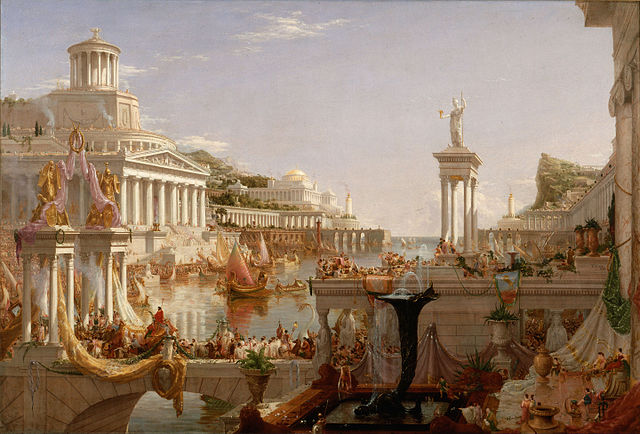
Throughout the course of history, technology progresses in ways that biological evolution cannot catch up. We now find ourselves at the beginning of the AI revolution. This changing era brings us unexpected opportunities as well as threats.
Experts have predicted that Artificial Intelligence will make us more efficient but at the cost of our freedoms. There are speculations; computers can be equal or, most likely, exceed human intelligence and skills in various tasks such as decision making, learning, analysis and pattern recognition.
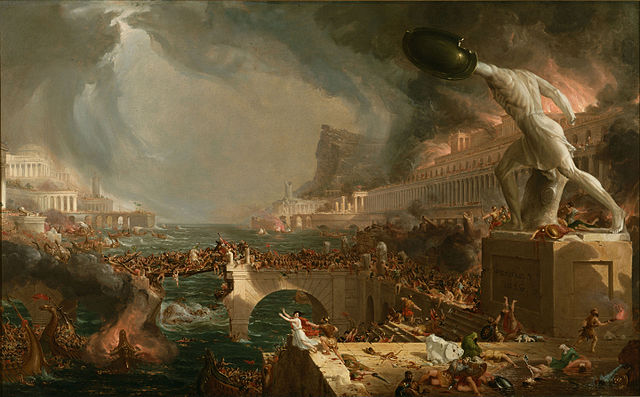
It is desirable to proceed in this direction because of the efficiency. The “smart” systems
Concerns and possible solutions for an AI-powered future
According to this report by Pew Research center, many ‘experts’ across various fields related to AI were asked to consider the state of AI a decade from now.
In particular, they were asked whether they think that the overall change will be positive, or negative.
Despite the fears, a majority of them were hopeful that people would adapt by then. A little less than 40% of them said that it would not be better.
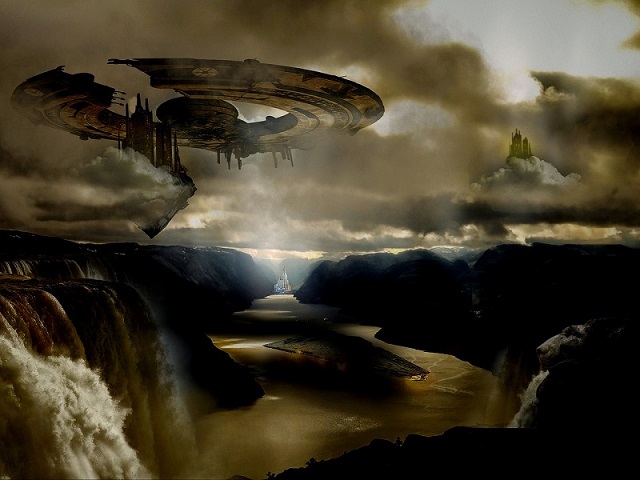
Many of them suggested that technology has its good as well as bad applications, and AI is no different. One considerable positive point to consider is improvement in areas of healthcare and potential improvements in the overall happiness of the community.
A summary of their concerns and proposed solutions is as follows:
Concerns
Loss of control over personal lives
AI now handles a majority of decision making on many important aspects of life. This has led to a sacrifice of freedom, privacy, and choice. Most users lack a deeper understanding of the services they use. As a result, they are often unaware of monitoring and controlling across various fields. This becomes a growing concern as automated systems are becoming the trend.
Misuse of data
The use and monitoring of data is a growing concern because of the involvement of various legal systems and government agencies. The majority of the most powerful Artificial Intelligence systems are in the hands of private organizations or governments. One of the key objectives of these two types of organizations deals with maintaining and obtaining power. Values and ethics are not part of most of these systems. They remain as tools, though very powerful ones. To add to this concern, these systems are connected throughout the world. It is not easy to regulate or reset them.
Loss of Jobs
It is a common perception that AI will kill most human jobs. Specifically, the replacement of most jobs with some kind of fixed pattern is certain. Use of AI also has an economic division, which is a cause of recent social unrest. The efficiency of AI makes it more favorable than hiring humans for the same tasks; it is cheaper, faster, accurate, and more efficient overall. AI will eventually affect all aspects of human work. On one hand, some people expect the creation of some jobs, the majority of experts agree that there will be mass scale job losses across all industries in the future.
Limit on Human Growth
Many industry experts see artificial intelligence as an improvement in human abilities, but some predict the opposite: that the growing dependence of people on computer-controlled networks affects their ability to think for themselves, interact effectively on their own with other humans.
Chaos
AI will affect traditional sociopolitical structures. There is always the possibility of the loss of many lives due to the rapid growth of autonomous military applications. There are also concerns about the existence of cybercriminals in social and economic systems of the future.
Possible Solutions
Prioritizing the global good
There are various ways to approach these problems. One of them is improving cross-border relations and human cooperation. The highest priority of humanity should be to collaborate to work towards our collective interests. Along with the problems, the digital systems also provide us with the means to familiarize ourselves and gain relevant knowledge. Better treaties and agreements can be achieved through a better understanding of these problems and dangers.
Value-based systems
Organizations should strive to develop policies which ensure that AI addresses humanity and the common good. A famous work about this aspect is Isaac Asimov’s “Three Laws of Robotics”. In particular, the first ‘law’. The essence is, that robots should avoid harming humans directly or indirectly through action or inaction.
As for policies, they should strive towards decentralization of digital networks and help people to ethically comply with the technology.
“23 principles of AI by Asilomar” is another related work concerning this.
Prioritizing the needs of the people
Political states should change their economic and political systems to assist people with robots. At the same time, education systems should also be changed to comply to increase the cooperation of people and AI.
An overpowered future with AI
Humans are said to have limitless potential. This is taken a step further by instilling this potential into AI.
AI has limitless potential.
(Fun fact, “ai” means “love” in Chinese and Japanese, cheesy bilingual pun)
Artificial intelligence allows us to surpass our natural computing limitations. By imitating the natural processes such as evolution, genetics, neurons in a brain, we are able to have computing powers for an unending list of tasks.
Whether we like it or not, AI is only going to progress further and change everything. One way to deal with it is to better ourselves with knowledge and relevant skills. Rather than working against AI, we should seek to work with AI and boost our existing potential.
Unlike bees, we don’t have an identifiable “hivemind”, but we are clearly approaching towards it as the idea of singularity becomes more and more plausible. On one hand, we lose the sense of meaning in life, but life might not itself have an inherent meaning (Read Albert Camus). While reading and thinking about these topics, Zhuangzi’s butterfly dream.
Despite the dystopian existential panic, perhaps AI is the next stage in evolution? Maybe a consequence of the inherent pattern of things?
Further readings:
https://medium.com/predict/the-realistic-future-of-humanity-377e75fd07a7
https://nickbostrom.com/papers/future.html
https://www.scientificamerican.com/article/20-big-questions-about-the-future-of-humanity/
